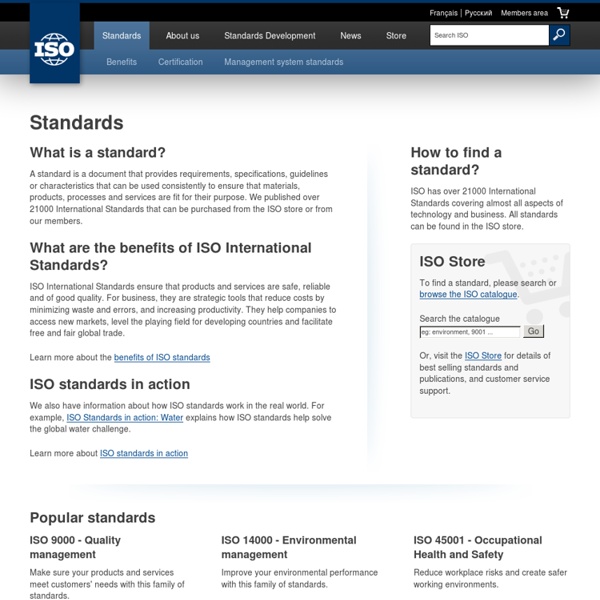Standards
What is a standard? A standard is a document that provides requirements, specifications, guidelines or characteristics that can be used consistently to ensure that materials, products, processes and services are fit for their purpose. We published over 21000 International Standards that can be purchased from the ISO store or from our members. What are the benefits of ISO International Standards? ISO International Standards ensure that products and services are safe, reliable and of good quality. Learn more about the benefits of ISO standards ISO standards in action We also have information about how ISO standards work in the real world. Learn more about ISO standards in action How to find a standard? ISO has over 21000 International Standards covering almost all aspects of technology and business.
steeluniversity.org | steeluniversity.org | steeluniversity.org Home Page
Metallurgy
Georgius Agricola, author of De re metallica, an important early work on metal extraction Metallurgy is a domain of materials science and materials engineering that studies the physical and chemical behavior of metallic elements, their intermetallic compounds, and their mixtures, which are called alloys. Metallurgy is also the technology of metals: the way in which science is applied to the production of metals, and the engineering of metal components for use in products for consumers and manufacturers. The production of metals involves the processing of ores to extract the metal they contain, and the mixture of metals, sometimes with other elements, to produce alloys. Metallurgy is distinguished from the craft of metalworking. Metallurgy is subdivided into ferrous metallurgy (sometimes also known as black metallurgy) and non-ferrous metallurgy or colored metallurgy. Etymology and pronunciation[edit] History[edit] Gold headband from Thebes 750–700 BC Extraction[edit] Alloys[edit] [edit]
Related:
Related:



